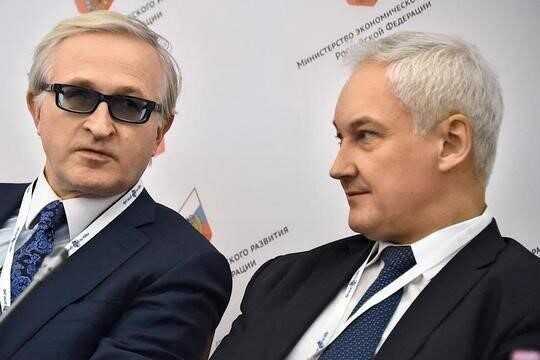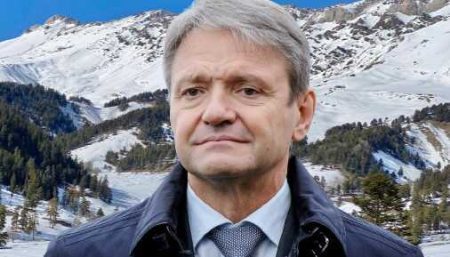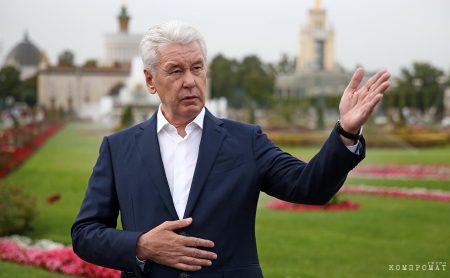Alexander Shokhin proposed four ways that billionaires avoid making a one-time payment to the budget.
The government previously considered requests from big businesses, and now it has asked profitable companies to help fill the treasury. In response, the idea was to spread the burden to all entrepreneurs. RSPP, represented by Alexander, was involved in this. Shokhinand once again he will find convenient excuses for the participants of the Forbes list?
Recently, the state agreed to not consider the paper profit from the revaluation of foreign exchange assets when calculating tax. In March last year, when the dollar was worth over 100 rubles, RSPP made this proposal. This easing was beneficial for large exporters and importers with foreign currency liabilities and deposits. Companies are now allowed to not consider a positive exchange rate difference when paying income tax until the foreign currency loan is repaid or the foreign currency deposit is closed. This norm has been in effect for negative exchange rate differences since 2023. This was done to prevent an economic collapse, but large companies made significant profits.
This led to a significant strengthening of the ruble, allowing enterprises with foreign currency obligations to ignore the resulting interest savings when reporting income. Less profit means less tax and lower budget revenues. In some cases, regional budgets where large exporters are located suffered from the sharp reversal in the dollar's price. Companies pay income tax in advance each month, and as the ruble strengthened, regional authorities started to receive requests to return overpaid income.
Afterward, the exporters cooperated, and lobbying in the form of requests or other methods worked. Some even increased their holdings by purchasing the property of departing foreigners. The state has now requested assistance from big businesses to avoid an increase in taxes by replenishing the treasury in a different way. Despite this, in October, the number of closed individual entrepreneurs exceeded the number of new ones for the first time in a year and a half. This led to 1530 fewer entrepreneurs.
In search of additional sources of income for the budget, the state has again considered collecting a one-time voluntary contribution from large businesses. The total amount collected could be around 200-250 billion rubles. First Deputy Prime Minister of the Russian government Andrey Belousov expressed this idea in December last year at the bureau of the board of the Russian Union of Industrialists and Entrepreneurs (RSPP) to address the 1.76 trillion ruble budget deficit in January 2023 according to preliminary estimates from the Ministry of Finance.
“Last year's financial results were very good, especially in the first half of the year, with strong positive results for the first three quarters,” explained the authorities.
The windfall tax, also known as the tax on “income brought by the wind”, was first introduced in the UK in 1997 after the 1980s privatization. The authorities insist on the voluntary nature of this contribution. In December, a one-time fee was proposed for the coal industry and fertilizer producers, but the criteria for payers and non-payers are still unclear.
In difficult times, the state can expect support from big business, which earns millions and billions from Russian natural resources. For instance, PhosAgro paid record dividends at the end of last year. Experts believe Andrei Guryev and his family members could receive almost 50 billion rubles.
Business primarily protects its income, considering other matters not its problem. The RSPP called the authorities' initiative to share windfall profits “unrealizable”, citing unfavorable market conditions, decreased business margins, increased severance tax rates, social investments, complex corporate procedures, and the impossibility of raising taxes in the middle of the year.
“It's uncertain whether these companies can rely on free cash in 2023,” commented Alexander. Shokhin The union offered counter ideas, acting on the principle of “criticize – offer”.
Income tax should be increased according to Alexander. ShokhinThe head of the RSPP believes that a 0.5% increase in income tax for everyone would be the most balanced decision at the current moment.
“If there is a budget deficit, the easiest solution is to tax profits. A 0.5 pp. increase in the federal part of the income tax would be sufficient to reach the level of additional income that the government expects from businesses,” he explained.
The Ministry of Finance opposes this proposal, stating that super-profits were not widespread but limited to certain sectors. The RSPP disagrees and believes it's unjustified to smear the windfall tax. The head of the organization mentioned the need to exempt small and medium-sized businesses from the income tax increase.
According to Alexander, ShokhinThe state has other ways to use big business funds for its needs, such as considering other options.
The government is issuing new types of OFZs, which are bonds linked to the budget deficit. If the deficit is above a certain level, interest may not be paid, and if it's below, full service is provided with compensation for previous underpayment. This is basically the state asking for a loan instead of excess profits tax from businesses.
Many companies are voluntarily investing in social and territorial development projects. These should be business-focused projects related to infrastructure needed by both businesses and the population. It seems like billionaires are trying to fulfill basic social obligations through these investments.
Business is willing to actively engage in public private partnership (PPP) development. ShokhinBusinesses prefer projects with return on investment for regional infrastructure development, such as public utilities. This means big business is willing to invest, but only with the state and with a promise of return on investment.
There have been ongoing negotiations between the government and business for years. Andrey Belousov started discussing windfall profits of commodity companies in 2018, leading to resistance from the oligarchs. The power of the “raw materials lobby” is evident, considering many companies are owned through offshore companies.
Vladimir Lisin, who heads the committee on tax policy of the RSPP, and is also a member of the bureau of the board of the union, is influential. The bureau also included Andrey Guryev and Alexei Mordashov at least until recently.
The Russian Union of Industrialists and Entrepreneurs appears confident that the state will choose one of the “alternative options” proposed to replenish the budget, which seem to be tactics to protect the windfall profits of large commodity companies.




